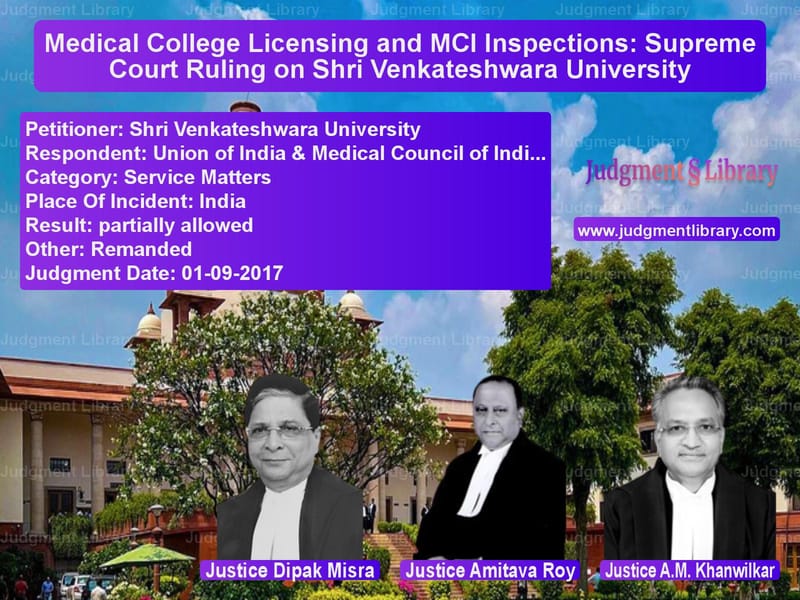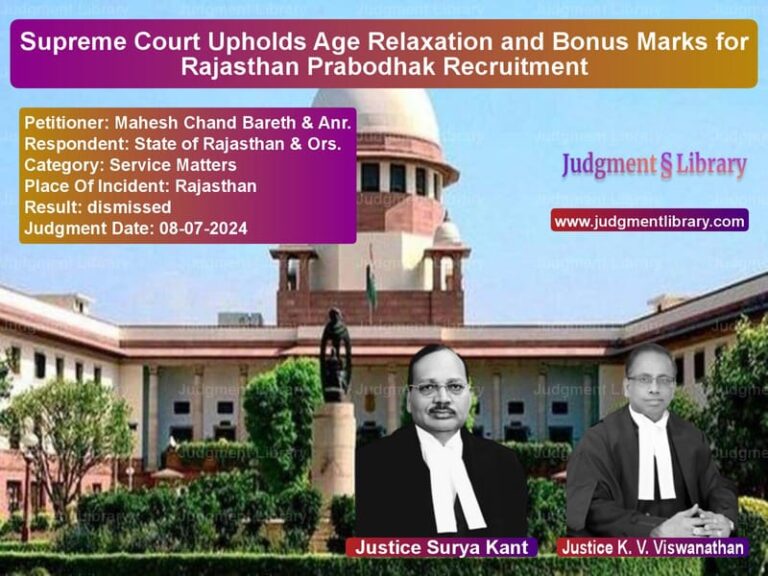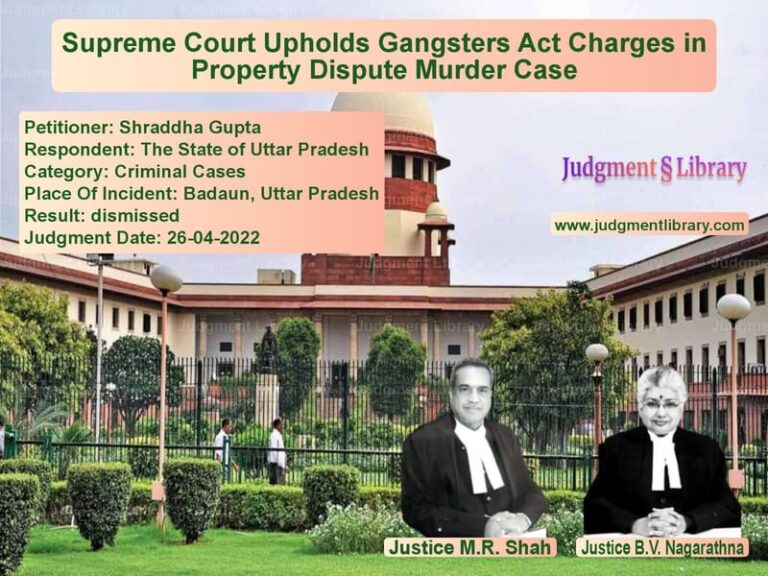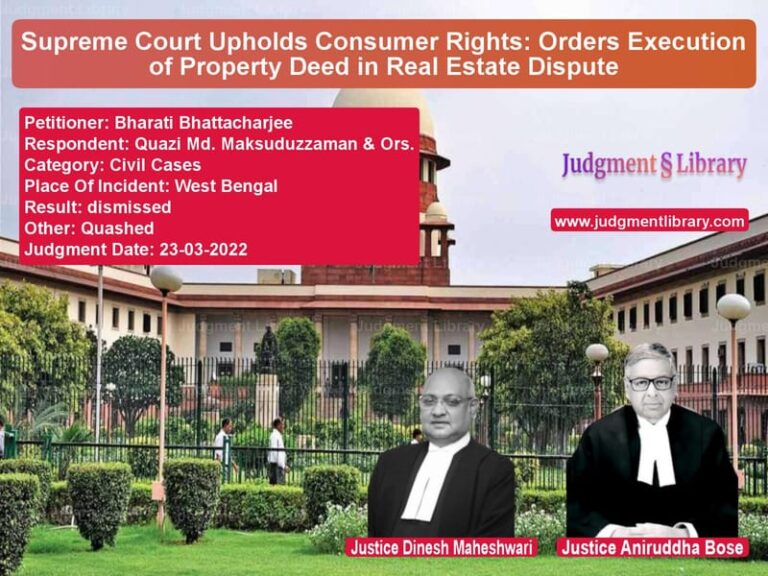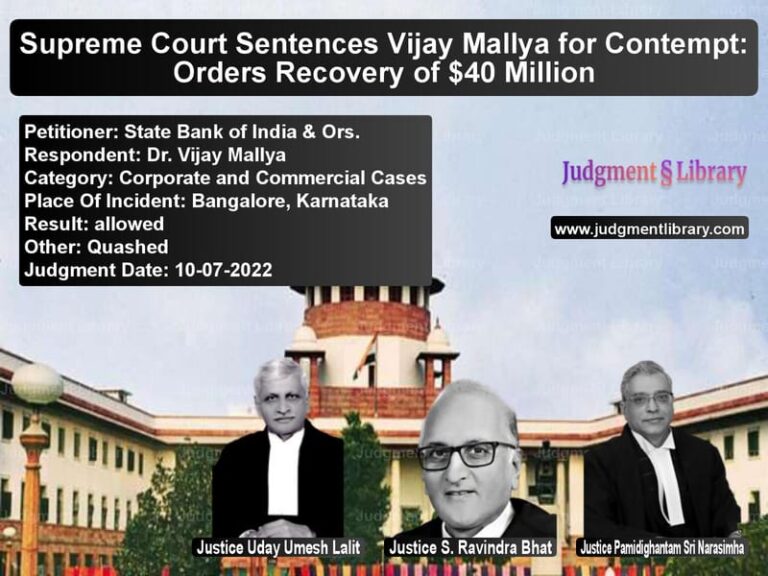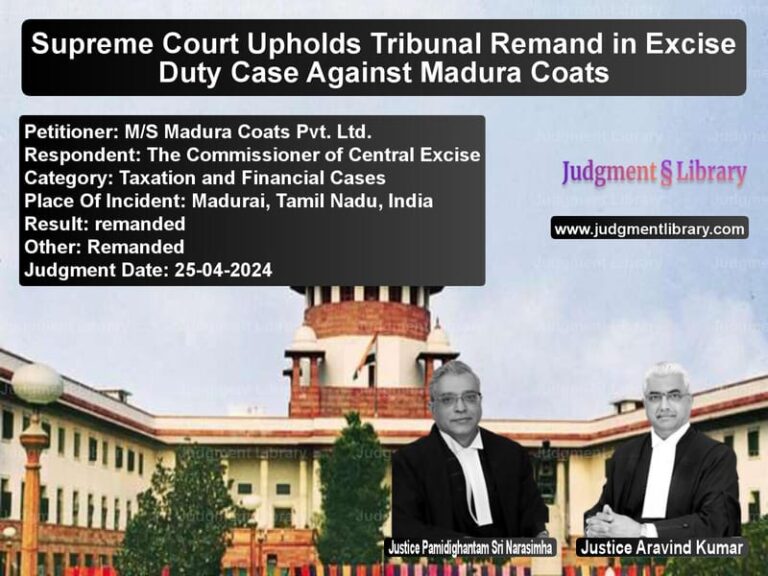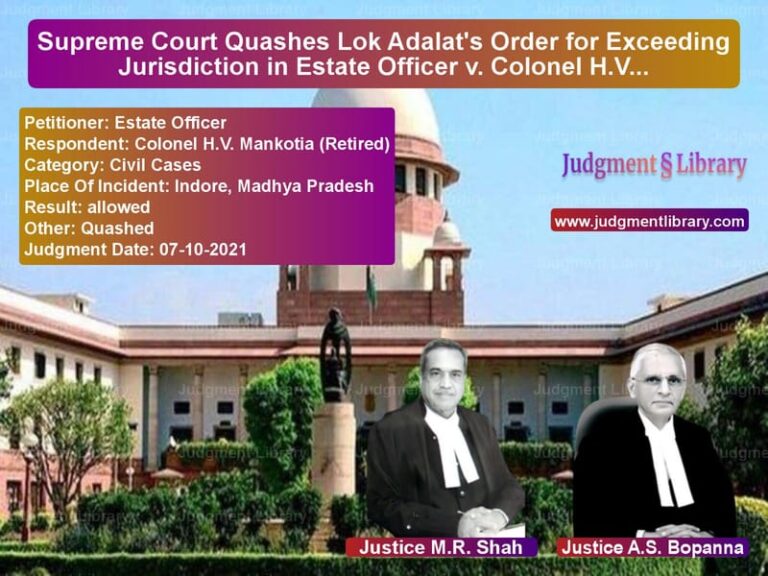Medical College Licensing and MCI Inspections: Supreme Court Ruling on Shri Venkateshwara University
The case of Shri Venkateshwara University vs. Union of India & Medical Council of India revolves around the Medical Council of India (MCI) inspection process, its authority to conduct surprise inspections, and the government’s role in regulating medical college admissions. The Supreme Court had to decide whether MCI acted within its powers while debarring the university from admitting students for two years and encashing its bank guarantee.
Background of the Case
Shri Venkateshwara University had applied for renewal of permission to admit MBBS students for the academic years 2017-18 and 2018-19. In 2016, the MCI conducted an inspection of the institution and reported various deficiencies. Despite this, the Oversight Committee, appointed by the Supreme Court, allowed the university to admit students for the 2016-17 session while imposing conditions for compliance.
Subsequently, MCI conducted another inspection in December 2016, which led to the Ministry of Health and Family Welfare debarring the university from admitting students for two years and authorizing MCI to encash the bank guarantee. The university challenged this decision before the Supreme Court.
Arguments Presented
Petitioners’ Arguments (Shri Venkateshwara University):
- The surprise inspection on December 9, 2016, was unjustified and violated MCI regulations that prohibit inspections during religious holidays.
- The alleged deficiencies were either exaggerated or already rectified.
- The decision to bar admissions and encash the bank guarantee was disproportionate and violated the principles of natural justice.
Respondents’ Arguments (Union of India & Medical Council of India – MCI):
- The inspection was necessary to verify compliance, especially since the previous report had raised serious concerns.
- The university failed to ensure faculty availability and proper infrastructure despite the conditions set by the Oversight Committee.
- The hospital attached to the medical college was non-functional on the day of inspection, which raised doubts about the quality of education.
Supreme Court’s Ruling
A bench comprising Chief Justice Dipak Misra, Justice Amitava Roy, and Justice A.M. Khanwilkar ruled that the MCI’s actions were valid but directed certain relaxations. The key points from the judgment were:
- “Escheat is a doctrine that does not apply automatically. It requires due legal process and cannot be decided solely by an administrative officer.”
- The state bears a heavy burden of proof in escheat cases and must demonstrate the absence of legal heirs beyond reasonable doubt.
- The appropriate authority for resolving such disputes is a civil court, not an administrative officer like the Collector.
- The High Court erred in upholding the Collector’s decision without requiring proper judicial adjudication.
- The Collector’s actions violated the principles of natural justice by failing to consider all relevant evidence.
Legal Precedents and Key Judicial Observations
The Court reaffirmed that property rights cannot be arbitrarily taken over by the state without due process. The judgment referenced earlier cases, such as State of Punjab vs. Balwant Singh, which held that the doctrine of escheat must be applied with caution and only when there is clear evidence of heirlessness.
Additionally, the Court cited State of Bihar vs. Radha Krishna Singh, which emphasized that the state must issue a public notice before claiming escheat, allowing any potential heirs to come forward.
Implications of the Judgment
This ruling has significant implications for property rights in India:
- It establishes that administrative officers cannot unilaterally decide on escheat claims.
- It upholds the necessity of judicial scrutiny in cases where private property is at risk of government takeover.
- It protects religious and charitable institutions from arbitrary state interference.
- It reinforces the principle that property disputes must be resolved through proper legal channels.
Important Extract from the Judgment:
“The law does not readily accept a claim to escheat. The onus rests heavily on the person who asserts the absence of an heir qualified to succeed. To allow administrative authorities, including the Collector, to adjudicate upon matters of title involving civil disputes would be destructive of the rule of law.”
Conclusion
The Supreme Court’s ruling in this case is a landmark decision that reinforces the protection of private property against arbitrary government action. It ensures that escheat claims undergo thorough judicial scrutiny, thereby safeguarding the rights of individuals and trusts. The judgment upholds the fundamental principles of due process, fair adjudication, and respect for established legal procedures in property disputes.
Don’t miss out on the full details! Download the complete judgment in PDF format below and gain valuable insights instantly!
Download Judgment: Shri Venkateshwara U vs Union of India & Med Supreme Court of India Judgment Dated 01-09-2017.pdf
Direct Downlaod Judgment: Direct downlaod this Judgment
See all petitions in Recruitment Policies
See all petitions in Public Sector Employees
See all petitions in Employment Disputes
See all petitions in Judgment by Dipak Misra
See all petitions in Judgment by Amitava Roy
See all petitions in Judgment by A M Khanwilkar
See all petitions in partially allowed
See all petitions in Remanded
See all petitions in supreme court of India judgments September 2017
See all petitions in 2017 judgments
See all posts in Service Matters Category
See all allowed petitions in Service Matters Category
See all Dismissed petitions in Service Matters Category
See all partially allowed petitions in Service Matters Category

